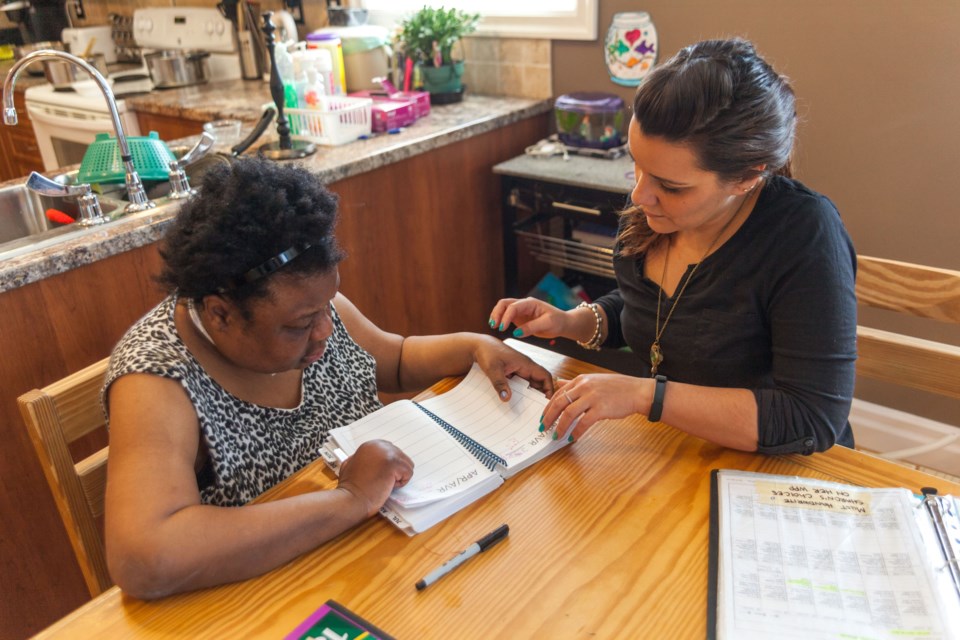NEWS RELEASE
DEAFBLIND ONTARIO
*************************
Social distancing is proven to be one of the most effective ways to reduce the spread of COVID-19. For Canadians and many across the globe, this means changes to everyday routines to minimize contact with others. However, for someone with deafblindness, touch is essential for communication.
Deafblindness is a combination of hearing and vision loss that is unique to each person and can impact access to information, communication, and mobility. Over one per cent of Canada’s population or approximately 466,420 people are deafblind. In Ontario, an estimated 211,250 individuals are deafblind.
Intervenors are professionally trained to act as the “eyes” and “ears” of the individual with deafblindness through the sense of touch. They provide visual and auditory information through various forms of sign language, some of which is tactile.
“Social distancing is nearly impossible when supporting an individual with deafblindness. It would mean no communication, guidance, safety, or compassion… it would eliminate their human rights for this unique population," said Vera Mota, an intervenor at DeafBlind Ontario Services.
As an essential service during these challenging times, intervenors are working every day; encouraging people with deafblindness to be more independent and live full, meaningful lives.
“At DeafBlind Ontario Services, we believe it is always our role and responsibility to prioritize the health and well-being of the people we support and our employees. Since the beginning of the COVID-19 outbreak, we have been monitoring the progression of the virus, making decisions that are in line with both our mission and the recommendations of health officials and government leaders,” said Karen Keyes, Chief Operating Officer.
“For our team, social distancing means continuing to facilitate communication with the people we support. Our role during these times includes taking a universal precautions approach to infection control, along with limiting interactions if possible and sanitizing between interactions with different individuals. It also means comforting them, lessening their anxiety, and trying to instill a sense of normalcy,” said Vera.
“Our team is constantly thinking outside the box to bring recreational and leisure activities in-house to the people we support. You see passion and creativity come alive when the hallway is turned into a bowling alley using pop bottles as pins and soccer balls as bowling balls. Community experiences that are important to the person supported, like going to Tim Hortons for a tea, are being recreated at home too.”
“It is important to help do our part in containing the COVID-19 virus, reducing the risk of spreading the virus to the people we support, some of whom face additional medical challenges, as well as our valued employees, and the greater community,” said Karen. “We are all in it together, taking it day-by-day. At DeafBlind Ontario Services, we are resilient; when faced with challenges, we adapt and grow, becoming stronger together.”
DeafBlind Ontario Services provides accessible residential and customized support services across the province, including in Barrie. They take a holistic approach to providing Intervenor Services that are customized to each individual’s unique needs, method of communication, and goals to increase their independence and enrich their life. Learn more at www.deafblindontario.com.
*************************
